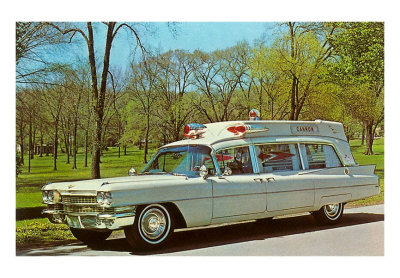Continued from part 2…
There’s another benefit of patient transfers beyond the merely educational. You get to meet the people.
Oh, you meet people on emergencies. Depending on the nature. Dead people don’t talk much. (You get a look at their houses, maybe.) And really sick people, well, you’re pretty focused on the medical stuff then. Patch this, pump that, push the magic potion. When did it start? Have you felt this way before? What Russ Reina calls the business of being a “flesh mechanic.”
But on a routine transfer, and to a lesser extent on the non-emergent “emergencies” (when you have little to do and no hurry to do it), you get to actually chat with the human being upon your stretcher. Imagine that! They don’t just have a name and date of birth — they have a trade, a family, a history, a life.
Everyone has a story. Some of them are more interesting than others on the surface, such as the retired spy or the film star, but everyone has a story, and they’re all worth hearing, if you care.
Most of these people are old. If you’re not old, you may think this means they have less to say to you, but really, it’s the opposite. You’re 25 and they’re 90; all of the problems you’ve got, all the changes in the world you think are new, every dilemma you’ve ever faced, they’ve seen it and heard it and done it. They’ve been alive for several of you. Do you think people live that long without knowing their way around?
I once heard it suggested that you don’t really grow any wiser as you age, because although you learn from your mistakes, there are still an infinite number of future mistakes to be made. You never “run out” of new errors.
Perhaps that’s true. But even if the 90-year-old benefits little from his wisdom, that doesn’t mean you can’t borrow some of it. And even if his experiences or decisions differ from yours, they were just as important to him as yours are to you, and you can bet the stories are worth hearing.
Where else can you meet such a range of people? And not just meet, but find yourself forced into spending one-on-one time with them? If you’re a misanthrope, this is not a good career for you. Multiple times a day you’ll be placed in a small box with a stranger for a period lasting minutes to hours. It’s like speed dating.
But if you like people — enjoy meeting them, appreciate their company, take pleasure in their lives — then there’s no better job to have.


Recent Comments